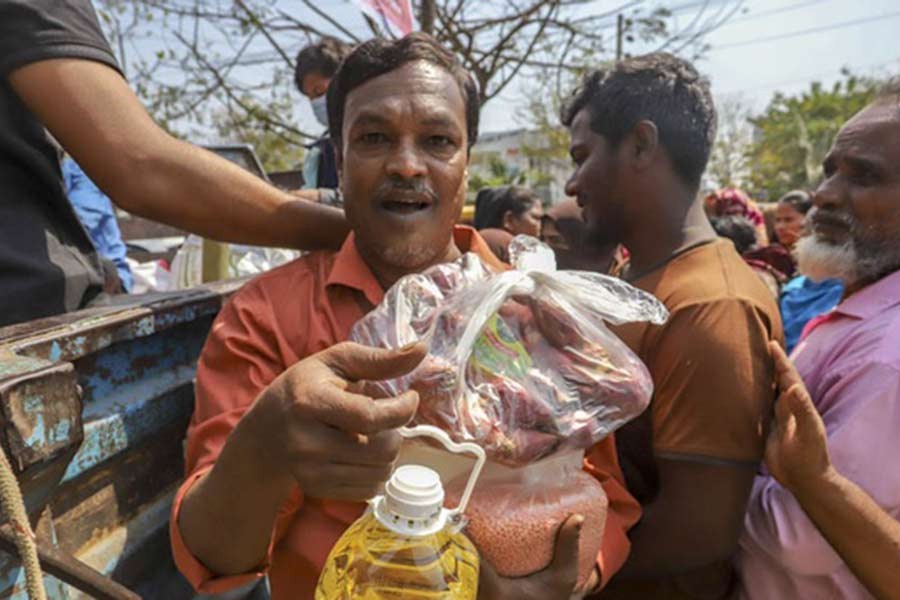Pulse prices are on the rise and some varieties have vanished from the shelves in some areas as the US dollar soaring against the taka amid the Ukraine-Russia war has hurt imports.
The prices of flour, for which Bangladesh depends on the imports of wheat, are also rising.
Official data from the Trading Corporation of Bangladesh (TCB) showed prices of pulse increased by up to 7 per cent in a month, reports bdnews24.com.
The price of the coarse variety of lentils was Tk 110 per kg in Dhaka on Friday, up from Tk 100 a week ago and Tk 90 in the previous week.
The price of the fine variety of locally produced or Nepalese lentils increased Tk 10 to Tk 130 per kg in a month. The prices of other varieties of pulse, such as split peas and Mung, have also increased by Tk 10 a kg.
According to the TCB, the price of basic flour has increased by 30 per cent in a month to Tk 50 a kg while all-purpose flour now costs Tk 65 a kg, up by 18 per cent in a month.
Both Ukraine and Russia are the biggest suppliers of wheat and war has heavily disrupted supplies from those countries. India’s recent decision to halt exports also hit the global wheat market.
Businesses believe the Russia-Ukraine war has played the biggest role in driving the prices of pulse and flour.
The devaluation of the taka against the dollar led to a rise in import costs, which also affected the prices of the products.
Shafi Mahmud, president of Bangladesh Pulse Traders’ Association, however, does not agree that the prices have increased too much.
The prices were at the same level more than a decade ago and dropped in the past few years due to a decrease in prices on the international market, he said.
Now the US dollar gaining on the taka, increased shipping costs, and a spike in prices on the international market amid the war are driving the prices on the domestic market, he said.
Shafi said a shipment of lentils with a letter of credit opened 15 days ago cost him Tk 122 per kg. If he opens an LC now, the price will be more than Tk 130 due to the increased exchange rate of the US dollar.
Abul Khayer Group, ACI, City Group and other companies that import pulses have also hiked prices, he said.
SPLIT PEAS START TO VANISH
Split peas, known as Ancor Dal in Bangladesh and popular for breakfast at restaurants, were not available in most of the wholesale and retail markets of Mirpur on Friday.
Very few shops that had split peas sold the products at Tk 70 a kg.
Traders said the import of split peas almost stopped after the war started in Ukraine, a major supplier.
Moreover, people bought the product en masse during Ramadan in April.
“The price of this pulse will increase,” warned Chunnu Haji, proprietor of Razzak Banijyo Bitan in Old Dhaka.
He said retailers also raised the prices of locally produced Mung Dal by taking advantage of a hike in prices of the imported products.


